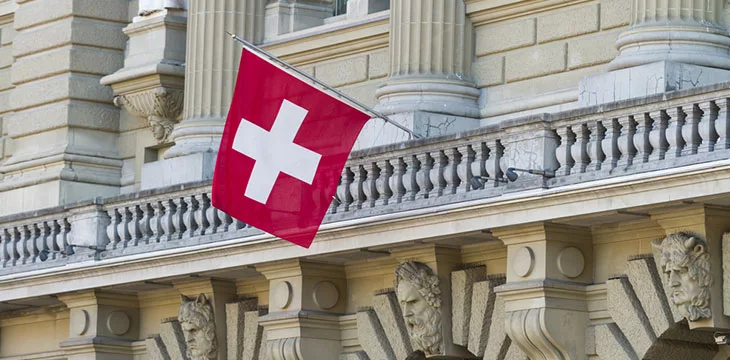|
Getting your Trinity Audio player ready...
|
Switzerland continues to lead the way in blockchain regulation, approving a raft of new laws which amend existing statutes to bring them in line with advancements in blockchain and digital asset technology. The laws are expected to come into force in early 2021.
The amendments apply to several statutes, and have been drafted with concern for the potential damage wrought by under-regulation in this area, balanced by the need for a commercially sensible regime which does not stifle industry growth. Throughout the consultation and drafting process, the Swiss Federal Council has made clear that the objective is to create the best possible framework so that Switzerland can continue to grow as a leading, innovative and sustainable blockchain and fintech destination.
Bitcoin Association’s Regional Manager for Europe, Patrick Prinz, said the changes had been a long time coming and sent a strong signal to the market.
“Regulators always take time to learn and understand the environment before acting,” explained Prinz.
“Globally, we are now entering a phase of execution, where regulators are beginning to directly engage by implementing new laws and legal frameworks, as well as removing those players who are intentionally disregarding the core rules of the cross-border investment game.”
The three largest amendments concern tokenization of rights, digital asset exchanges, and bankruptcy law.
The amendments introduce a new category of tokenized rights called ‘uncertificated register securities’ (Registerwertrechte/URS), analogous to security tokens. URSs share the same key features as traditional securities, but are able to be transferred digitally. Under the amendments, these assets must be registered on a distributed ledger technology (DLT)-based register and can only be transferred or claimed through that register.
They set out requirements for the DLT-based register, which include adequate security standards protecting the register against unauthorized changes. While the amendments do not go far into detail as to what qualifies as adequate, it does provide a list of well-known examples of adequate systems, including proof-of-work and proof-of-stake. The entity offering the URS must also disclose the details of the URS and the register being used. The amendment also stipulates the liability of the offeror if they do not meet their disclosure obligations.
Regarding exchanges, the amendments apply to the Swiss Financial Market Infrastructure Act. Specifically, it sets out the requirements for exchanges that are offering DLT-based securities (as distinct from payment assets, such as Bitcoin SV). It largely uses the existing wording regarding traditional trading venues. Most importantly, it allows the Swiss Federal Council and Swiss Financial Market Supervisory Authority to stipulate licensing requirements for these exchanges. Keeping in line with the attitude toward commercial practicality in the amendments, they are also given the discretion to make specific requirements for smaller exchanges which pose lower risks to the financial system and their customers.
Prinz expected the changes to create a more equitable environment for exchanges to operate in—a move he said would only be a positive for the industry.
“These moves by the Swiss regulator will have the effect of levelling the playing field for DLT exchanges and traditional exchange operators alike, as well as strengthening the requirements for service providers to retail customers to implement and obey both AML and transaction monitoring rules,” he explained.
“To date, I am still not clear why some digital asset service providers felt that they could operate in the dark, with existing rules and regulations not applying to them.”
The last big area to be impacted by the amendments is bankruptcy law. Legislators foresee digital assets playing more of a role in insolvency proceedings as adoption continues to increase. From next year, digital assets which rest with a third-party custodian are protected in case the custodian begins bankruptcy proceedings. Custodians must keep the digital assets available to the rightful owner at all times, and must be able to allocate the assets it is controlling to individual clients or an identifiable community of clients.
There are other, smaller amendments which are also important. Issuers of payment tokens and decentralized trading platforms are also now explicitly subject to Switzerland’s anti-money laundering requirements, meaning they will now have to take the same steps to prevent money laundering as traditional financial institutions. Offerors of URSs who exclusively serve institutional or professional requirements are no longer required to be affiliated with an ombudsman’s office, as was the case before. Those acting as custodians are also now required to obtain a FinTech license in situations where digital assets are accepted as deposits.
The amendments are far reaching, and Switzerland’s efforts to modernize existing legislation to accommodate digital assets means many already-understood rules and regulations can be applied to digital assets. At the same time, the Swiss Parliament has tried to avoid stifling the growth of the digital asset industry in the country by making practical allowances within the rules, especially for smaller entities who might have value to add to the ecosystem but would be unduly burdened by rules which are more appropriate for larger companies.
It’s important to note that the amendments still leave discretion to the likes of the Swiss Financial Market Supervisory Authority regarding issues such as licensing requirements, so there will be further developments in Switzerland once the amendments come into force next year.
“The values and mantra that underpin the moves by the Swiss regulator today are right in-line with Bitcoin SV: foster a regulation-friendly ecosystem that facilitates innovation in the digital currency space and blockchain industry, while respecting the rule of law,” said Prinz.
“Today, the regulator has made it clear that running a business comes with liabilities—something which must be glaringly obvious to even the most ignorant players in the market now.”
See also: CoinGeek Live panel on Digital Currency & Global Compliance: Tools & Tips for Exchanges, Wallets & Other Service Providers.
https://www.youtube.com/watch?v=cGcz1LLXMJY&feature=youtu.be&t=23072

 02-19-2026
02-19-2026 




